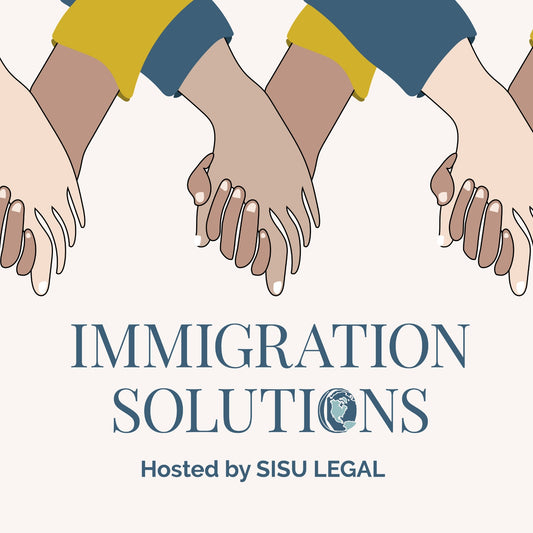How to Sponsor Your Significant Other for Canadian Immigration
Canada’s spousal sponsorship program is available to a spouse, common-law partner, or a conjugal partner of a Canadian citizen or Canadian permanent resident. The end goal is to obtain permanent residence for the spouse, common-law partner, or a conjugal partner. There is no separate category for engaged couples, however, some qualify for spousal sponsorship via the common-law partner category. In some cases, it helps to apply after becoming legally married if cohabitation was not achieved for a consecutive period of 12 months.
STEP 1 - CHECK IF YOUR SIGNIFICANT OTHER QUALIFIES FOR SPONSORSHIP
Spouse
Means either of the two people (opposite or same gender) in a marriage that is legally recognized in the country where it took place, as well as in Canada. Marriages performed outside of Canada by proxy, telephone, fax, internet and other forms of marriage where one or both persons weren’t physically present at the ceremony are NOT recognized.
Common Law Partner
Means a person who has been living in a conjugal relationship with another person (opposite or same gender), continuously for at least one year. A conjugal relationship exists when there is a significant degree of commitment between two people.
To show that you are in a common-law relationship, submit proof that you:
• share the same home,
• support each other financially and emotionally,
• have children together, if applicable,
• present yourselves in public as a couple.
Conjugal Partner
Means a person who is living outside Canada, in a conjugal relationship with a sponsor for at least one year, and could not live with the sponsor as a couple because of reasons beyond their control (e.g. immigration barrier, religious reasons or sexual orientation). Principal applicants who are living in Canada are not eligible to be sponsored as conjugal partners, either in the Spouse, Common-law in Canada program or the overseas sponsorship program.
This term applies to both heterosexual and homosexual couples.
In most cases, the foreign partner is also not able to legally marry their sponsor and qualify as a spouse. In all other respects, the couple is similar to a common-law couple or a married couple, meaning they have been in a bona fide (genuine or real) conjugal relationship for a period of at least one year.
A significant degree of attachment and mutual interdependence between both partners must be shown. The couple must submit proof of the obstacles or restrictions that are preventing them from living together or getting married.
STEP 2 - CHECK IF YOU QUALIFY AS A SPONSOR
To qualify as a sponsor, you must be able to:
• Support them financially
• Make sure they do not need social assistance
Other eligibility criteria for the sponsor:
• At least 18 years old
• Canadian Citizen, permanent resident, or a person registered in Canada as an Indian
under the Canadian Indian Act.
• Living in Canada if a permanent resident. If you are a Canadian citizen living outside of Canada, you must show that you plan to live in Canada when your sponsored relative becomes a permanent resident.
• Ability to show that you are not receiving social assistance for reasons other than a disability.
You must be able to show that you can provide the basic needs for:
• Yourself
• Your spouse or partner
• Your spouse or partner’s dependent child(ren) (if applicable)
• Your dependent child(ren) (if applicable)
You may have trouble qualifying as a sponsor if:
• You were sponsored by a spouse or partner and you became a permanent resident less than 5 years ago.
• You have already applied to sponsor the spouse, parent or child you are currently seeking to sponsor and a decision on that application has not been made.
• You are still financially responsible for a previous spouse or partner that you sponsored.
• You are in jail, prison, or a penitentiary.
• You were convicted of attempting, threatening to commit or committing a violent criminal offense, any offense against a relative or any sexual offense inside or outside Canada.
• You did not pay back:
• Declared bankruptcy and are not discharged.
• Receive social assistance for a reason other than a disability.
• You have a removal order against you.
STEP 3 - GATHER THE DOCUMENTS YOU NEED, FOR EXAMPLE:
• A photocopy of both sides of the sponsor’s Permanent Resident Card or other proof of permanent residency, or a copy of the sponsor’s proof of Canadian citizenship (such as passport, or birth certificate);
• A photocopy of every page of the partner’s passport;
• Two passport-sized pictures of the partner;
• Any proof of the partner’s immigration status is Canada, if applying from within Canada;
• Proof of payment of fee for the application;
• Photocopy of the marriage license or certificate if applying as a spouse type partner;
• Proof of validity of the relationship, such as photographs, letters of support from people who can attest to your relationship etc. if applying as common-law type partner;
• Proof of sponsor’s financial capacity to support the partner, including a Notice of Assessment from the previous year and a letter of employment attesting to the employment currently held;
• Police clearance certificates, where applicable;
• Proof of medical examination;
• All relevant official application forms.
If you need assistance in sponsoring your significant other for Canadian immigration, please contact us. We would love to help.
It’s never too early to hire us!
The earlier you hire us, the more value we provide! We provide not only immigration application support but pre-application education and coaching as well. This would include things like - wedding planning with immigration in mind. Border crossing education and assistance. If you can’t financially afford and immigration lawyer, our legal products, are an awesome option to help you prepare.







